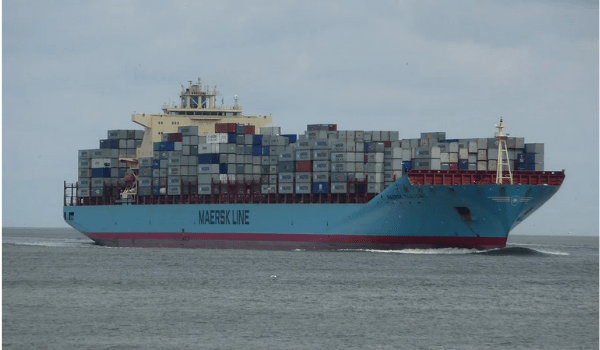Merchant ships and the seafarers aboard them, form the backbone of global trade. Working on board merchant vessels for an extended period of time, sometimes months on end, ferrying cargo from one country to another, makes for a hard vocational life for the seafarers. The pandemic has posed more challenges for these seamen as well as the shipping companies.
Speaking with a few junior-level merchant navy officials, the problem of deployment, irrespective of the shipping company, came to light. Many, who just started off their careers in 2020 have still not been on board. On the flip side, the more experienced seamen report running lengthy voyages, between 9-12 months, without any relief or break !
In a bid to understand the human resource management difficulties that the pandemic posed for shipping, HRKatha spoke with Karan Kochhar, head of marine people, Asia, Maersk.
Kochhar details that deployment of personnel during the pandemic has been a major issue for companies due to international travel restrictions. He reveals that people manning the ships work on a rotational basis. When a person’s tenure on the ship is about to end, another person of the same rank replaces that person on board. This sign off – sign on process ensures the smooth flow of personnel throughout the voyage.
The pandemic, however, badly dented this process.
“The basic issue was with the availability of flights to transport our seamen to various ports. While flights are available now, they weren’t available during a large part of the pandemic. We had to work using charter flights to transport our people, which made the whole process up to four times more expensive,” informs Kochhar.
He details that, for most countries, a replacing seafarer has to isolate for 14 days, get a COVID test on arrival and one after isolation. The personnel to be relieved has to get tested as well. If, by chance, he tests positive, the entire ship has to anchor for 21 days. “Halting a ship for 21 days in this manner costs millions of dollars in losses,” Kochhar exclaims.
To ease the process, companies such as Maersk had to work with charter flights as well as with hotels at ports, for the purpose of isolation as well as exchange of personnel.
Elaborating on the problems caused by travel restrictions, Kochhar reveals that a many countries do not allow Indian seafarers to get off board at ports. “When these personnel undertake voyages, they have only one or two opportunities to get relieved and have another join. Since many ports are closed for Indians, that process keeps on getting delayed,” he enunciates.
“A large number of seafarers were overdue for replacement on board throughout the pandemic. They weren’t able to get off and return to their homes to look out for their families during the harsh pandemic, as they were basically stranded at sea. At the same time, guys who were not deployed didn’t want to leave and risk getting themselves and their families infected,” Kochhar adds, further highlighting the issues faced.
To add to the woes, there was also temporary shortage of manpower. As a result, Maersk had to hire 400-500 additional experienced seamen. However, freshly- minted merchant navy professionals continue to struggle as onboarding is restricted for them. “Freshers generally join as cadets or apprentices on board and are not integral to the functioning of ships. During this time, when movement of people is so expensive and tedious, we can’t really afford the additional costs,” states Kochhar.
Life on board is hard anyway. One is literally floating on water in the middle of nowhere. Seafarers get lonely during their time on board. If this time gets further extended, it impacts their mental health. Kochhar explains that the matter remains a grave one for the seafarers today, particularly the Indian crew. He elaborates that the Company did extend the internet bandwidth for its crew and added additional access to mental health assistance helplines.
He reveals that Indian crew members have been discriminated against at international borders, strictly because of the risk of COVID-19.
“Many countries have refused Indian seafarers medical treatment at various ports in the past three months. Entire ships have been isolated even if a single crew member was found to be Indian,” he shares.
With the pandemic easing, the situation has improved on board. The sign off – sign on process, however, is still a major concern for the business, which expanded during the pandemic as international trade grew.
Kochhar explains that the industry has continuously been pushing to get seafarers designated as essential workers. “We are currently in talks with the IMO, the UN and governments across the world to get seafarers recognised as essential workers. We need to ease restrictions in order to take care of the health and wellbeing of our crew. Without them, there is no international trade”, Kochhar asserts.
He still believes that situation for seamen may only return to normal in a couple of years.



